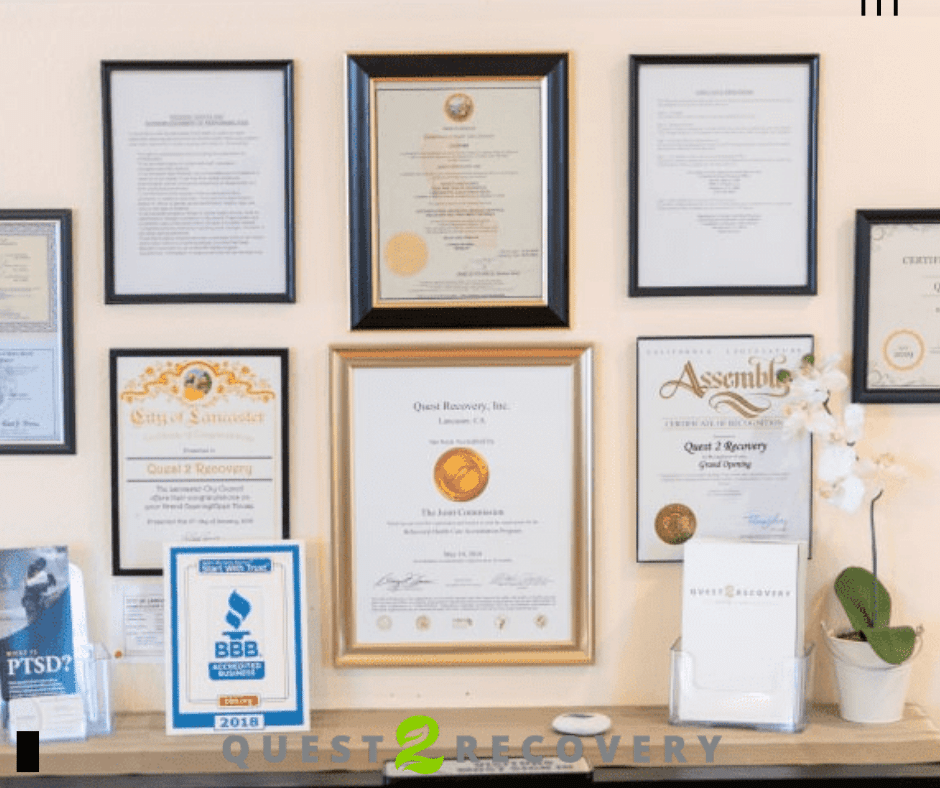In the ever-evolving field of addiction treatment, a crucial factor that guides the operation of treatment centers is compliance. The role of compliance is to ensure that addiction treatment centers operate within the bounds of legal, ethical, and professional standards. These standards are established by various regulatory bodies at the local, state, and federal levels, and may pertain to different aspects of the treatment center’s operation, such as patient care, privacy and confidentiality, staff qualifications, facility management, and ethical conduct.
Compliance is important in addiction treatment for several reasons:
- Protection of Patients: Compliance with regulations and standards ensures that patients receive high-quality, evidence-based care, have their rights respected, and their personal and health information protected. This is particularly critical for individuals undergoing addiction treatment, who may be in a vulnerable state and thus at higher risk of exploitation or abuse.
- Legal Requirements: Non-compliance can lead to severe legal consequences for treatment centers, including fines, sanctions, loss of license, and even criminal charges. Ensuring compliance helps avoid these penalties and maintains the center’s ability to operate.
- Building Trust: Compliance with industry standards and regulations helps build trust with patients, their families, and the wider community. It demonstrates that the treatment center is committed to operating ethically and professionally and that it prioritizes patients’ welfare.
- Financial Stability: Many insurance companies and government programs only cover services provided by licensed and accredited facilities. Hence, compliance can also impact a treatment center’s financial stability.
- Staff Training and Development: Compliance standards often require that staff have specific qualifications and ongoing training. This ensures that the treatment provided is up to date with the latest developments in addiction science and is delivered by competent professionals.
Comprehending and adhering to the numerous and complex compliance requirements can be challenging, but it’s an integral part of providing quality care and maintaining a center’s integrity and legality. This post will walk you through the basics of compliance in addiction treatment and help your center navigate this regulatory labyrinth.
Table of Contents
What is Compliance?

In the healthcare context, compliance refers to how well a facility adheres to legal, ethical, and professional standards. These standards are set by various local, state, and federal regulatory bodies and are designed to safeguard patients’ rights, protect their data, and ensure they receive quality care. In the sphere of addiction treatment, compliance takes on an even more crucial role, given the unique vulnerabilities of this patient population.
Compliance Components in Addiction Treatment
Licensing and Accreditation
Licensing is the first level of compliance. Addiction treatment centers need to be licensed by the appropriate state agencies, following the guidelines for care provision and facility management.
Accreditation, while often voluntary, is an additional layer of compliance. It provides an assurance of a certain standard of care. Accreditation organizations like The Joint Commission (TJC) or the Commission on Accreditation of Rehabilitation Facilities (CARF) evaluate the treatment center’s operations, the effectiveness of the treatment, patient satisfaction, and overall service quality.
Patient Privacy and Confidentiality
Addiction treatment centers must comply with the Health Insurance Portability and Accountability Act (HIPAA) at the federal level and any stricter state laws to protect patient’s privacy. This includes ensuring the confidentiality of their medical records, substance use history, and any personal information.
Further, there’s a specific regulation – 42 CFR Part 2 – that governs the confidentiality of substance use disorder patient records. Any disclosure of these records requires the patient’s written consent unless it’s an emergency, for research purposes, or mandated by a court order.
Ethical Treatment
Compliance with ethical standards is vital in addiction treatment, considering the potential for patient exploitation and abuse. Standards of care should be evidence-based, patient-centered, and respectful of patient’s autonomy. This also includes an understanding and commitment to non-discriminatory practices, regardless of a patient’s race, ethnicity, gender, age, or any other characteristic.
Staffing and Training
Having qualified and competent staff is another critical aspect of compliance. Treatment centers must comply with state-specific requirements concerning staff education, licensure, and experience. In addition, it’s important to provide regular training to staff members on topics such as ethical conduct, patient rights, and confidentiality.
Developing a Compliance Program
Developing a comprehensive compliance program is the best way to ensure adherence to all relevant laws, regulations, and standards. This should include regular audits, training programs, and policies on reporting compliance concerns. Additionally, having a designated compliance officer can help monitor the program’s effectiveness, address any violations, and keep the center updated on any changes in regulations.
Get Help With Compliance Today!
Navigating the terrain of compliance in addiction treatment may be complex, but it’s an essential aspect of providing high-quality, ethical care. The key is to develop a comprehensive understanding of the various compliance requirements and to establish a robust compliance program that encompasses state regulation as well as insurance and federal guidelines. By doing so, treatment centers not only protect their patients but also secure their position as trusted and respected providers in the realm of addiction treatment.







